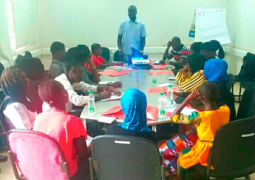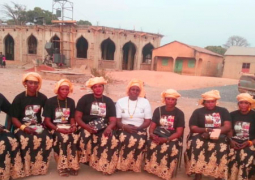Nelson Mandela will be revered as the leader of the movement that freed those living under oppression in apartheid South Africa. But Mandela also freed the oppressors, allowing them to reclaim their humanity.
Mandela’s death Thursday at age 95 ended a life steeped in integrity, courage and grace. But he left a lifetime of work on behalf of racial harmony and social justice. View Mandela’s accomplishments in South Africa as a universal example of resilience, rebirth and reconciliation.
Mandela’s fight against white domination eventually cost him his freedom. When he was convicted in 1964, Mandela reiterated his resolve to fight injustice.
As Africans it is important that we emulate the likes of Nelson Mandela who sacrificed to die for his countrymen.
We salute Mr. Mandela for the selfless sacrifice he made for South Africa.
Several people in South Africa have been praising him, and celebrated his legacy.
He stood for his country and struggled to the best interest of South Africa.
He spent the next 27 years confined to a small cell on the remote Robben Island. He drew on a deep well of courage to survive the isolation and showed compassion to his jailers even as they refused to let him attend the funeral of his mother and of a son.
Mandela was the personification of grace. When he was released after decades in prison, he called for reconciliation, not revenge.
Memories of the bitter struggle against apartheid have been tempered by peace and a united South Africa. Mandela led the way.
That is the final lesson from the man young South Africans have grown up calling “Tata,” or father. And now rest “beloved Madiba.” A transformed nation, and humankind, owes you a debt of gratitude.
‘‘There
is no passion to be found playing small – in settling for a life that is less
than the one you are capable of living,’’
Nelson
Mandela



